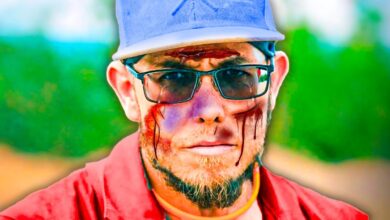
From some employees earning about half a million dollars to other employees who can barely make $30,000 a year, there are lots of questions as to why Parker does not pay his crew what they deserve. A bunch of folks work really hard to keep Parker Schnabel’s gold mining business going up and running in the Yukon when he’s not busy striking gold on the TV show Gold Rush. But folks are curious about how much Parker’s crew members make while they’re out there risking it all, digging for gold day and night in the tough Klondike.
Gold miners are paid little because companies want to keep costs low. There are lots of people willing to do the job, so companies don’t have to pay much. Even though mining is dangerous, miners don’t always get paid more for the risks. Also, miners don’t have much power to negotiate for better pay. If mines are far away from cities, wages might be even lower. Fixing this means giving miners more rights and making sure they get fair pay. Additionally, some mining companies may exploit loopholes in labor laws or employ subcontractors to further suppress wages. These practices further add to the problem of low pay in the gold mining industry, highlighting the need for comprehensive reforms to protect the rights and well-being of miners.
So, how much money do these miners make? Well, some of these workers rake in almost $500,000 a year dealing with Parker’s risky business. Parker didn’t keep it secret. He shared the details on social media about what his dedicated team pockets after months of digging. Parker spilled the beans, saying the newbies on his Yukon crew work a grueling 75 hours a week for weeks during the short summer mining season. Now, about the cash. On average, they’re making around 34 Canadian Dollars an hour. Getting paid by the hour might sound sweet, but Parker says after being pushed to their limits physically and mentally, it works out to about 65,000 Canadian Dollars over 25 weeks, or roughly six months. That’s because when winter hits hard in the Yukon, the digging stops. They also have to consider taxes and living expenses at the camp. So, after all’s said and done, new crew members take home closer to $30,000. Injuries and physical strains are also quite common, as unfortunate as it is, and this can drive down their earnings even less.
It’s no walk in the park, though. Parker mentioned the teams are pulling 12-hour shifts that are super strict and start bright and early at 7:00 a.m., continuing until 7:00 p.m., thanks to the never-ending summer sun in Alaska. As the days grow shorter in the short mining season, the shifts start from 8:00 a.m. to 7:00 p.m. Parker rewards his top workers with some nice bonuses, even though the starting pay might not seem like a lot for the amount of work they do. The big trucks used in the mine are some of Parker’s most valuable tools, and the folks who drive them can make over 440,000 Canadian Dollars a year. These skilled drivers handle massive Caterpillar trucks that can haul up to 50 tons of ore from the fields to the wash plant. Their constant trips are crucial for meeting Parker’s goal of mining 4000 ounces of gold worth 6 million Dollars in a season.
Even though the job is tough on their bodies and demands a lot of time, workers in charge of these important tasks can earn six-figure incomes, thanks to Parker being upfront about it. Fans now have a better idea of what Parker’s crew earns. But remember, the numbers Parker shared are averages, not exact figures, and pay for entry-level positions can vary based on experience. Bonuses are kept under wraps, and they might be in Canadian dollars instead of U.S. dollars. For those considering joining Parker Schnabel’s crew in the Yukon, it’s the real deal. You’ll work long hours and face rough weather from Mother Nature, but it’s a good living, even if it’s not your typical 9-to-5 job.
Parker and his team are making dreams come true in the Klondike, where gold is the reward for weeks of hard work. Parker Schnabel’s immense success is largely thanks to the dedication and hard work of his crew, who chase after that gold at the end of the season. Life at Big Nugget mine means long, tough hours, but there’s good pay waiting for newcomers who are willing to put in the time. But it’s no cakewalk. As mentioned before, Schnabel’s new crew members put in a whopping 75 hours a week during their first season, all squeezed into just five days. That’s more than double the hours of a typical 40-hour office gig. And when the mine is bustling and the daylight is plenty, those marathon shifts stretch from 7 a.m. till almost midnight. As autumn creeps into the Yukon, the days shrink, but the crews keep on trucking from 8 a.m. to 7 p.m. daily, grinding out 12-hour shifts. It’s a never-ending cycle of super long days aimed at extracting as much gold as possible before winter rolls in and puts a freeze on everything. With millions of dollars on the line each season, idleness cuts into profits big time. And when your boss is as demanding as Parker Schnabel, there’s no room for shortcuts or dilly-dallying because the mining season is short and sweet. This grueling routine lasts for 25 weeks or until the brutal Yukon winter shuts things down.
Then there are bonuses based on certain performance metrics, but Parker keeps those details close to his chest. It’s still a bit of a mystery, but with the amount of gold being found in the Klondike increasing every day during the summer, it’s likely that the bonus rewards for hard-working miners are pretty hefty. Even though they probably feel like they’ve earned every bit of the money they make, it’s important to remember that camp expenses and taxes take a big chunk out of their earnings. Once all those costs are accounted for, a beginner miner can expect to pocket closer to $40,000 for their first stint under Parker Schnabel. It might not be anywhere near what their famous boss makes in a year, but it’s a decent chunk of change for newcomers to Yukon gold hunting who want to prove themselves. And for those lucky enough to land cameo appearances on Gold Rush, Discovery sweetens the deal even more, offering potentially bigger paychecks. According to Parker, miners who make appearances on episodes can rake in up to $25,000 per TV spot, with a whopping 6 million viewers tuning in each week. Being featured on Schnabel’s popular show could really pay off big time. Even just a few cameo appearances can give hard-working folks a nice boost.
Reports suggest that Parker dished out $140,000 in bonuses for just one season last year. The skilled operators who handle the important machinery at Big Nugget mine make some serious cash. In addition to the entry-level workers putting in those grueling 75-hour weeks, Parker Schnabel hires a team of expert operators who earn some of the highest wages on-site. These folks have to expertly maneuver technically complex heavy machinery that’s running around the clock. The trained operators who handle Big Nugget’s mechanical workhorses bring in big bucks every year. But it’s the top dogs—the master drivers who steer Parker’s rock truck fleet—who take home the biggest paychecks of them all, day in and day out.
These seasoned pros are the ones in charge of handling the special Caterpillar 740B EJ beasts, each weighing a whopping 50 tons and valued at over $750,000. With precision and care, they transport loads of loose gold from various claims to the wash plant where it’s processed and sorted. Rock truck drivers play a crucial role in Parker’s gold-hunting quest at Big Nugget mine. They’re like the pulse of the operation, ensuring that the wash plant, a key component in gold extraction, always has a steady supply of rocks. Achieving the big goal of mining 4000 ounces of gold worth $6 million dollars per season would be nearly impossible without their constant dedication. For Parker, failure isn’t an option because every mining season puts his reputation and family legacy on the line. Though he didn’t disclose exact figures, Parker did mention that rock truck drivers pull in an impressive $440,000 during filming. That’s more than 3.5 times what entry-level crew members earn.
Such hefty pay comes with the hefty workload of moving hundreds of loads daily, with no breaks even amidst chaos. Not just anyone can handle navigating narrow trails next to cliffs at high speeds, moving 50 tons of loose rock at a time, and mastering complex gear transfer systems. The endurance to keep going for hours in the harsh Klondike conditions demonstrates the toughness and expertise of these drivers. In Parker’s fleet, it’s clear that fortune favors the bold. With so much riding on his top-of-the-line rigs, Parker spares no expense on the best rock trucks in the Yukon, ensuring that his teams, who spend entire seasons in the dirt behind the wheel of these monster machines, are well compensated with six-figure paychecks. If you’re brave enough to handle Parker’s riskiest mining gear, the rewards are pretty sweet, just like the man himself.
Living in a mining camp not only saves money but also comes with perks. Along with their fat paychecks, Parker Schnabel’s crew members get their basic meals and lodging covered. By housing them close to the claims, Parker keeps costs down, which is especially helpful for newbies facing their first tough Klondike winter. For them, having a simple place to stay is way more important than dealing with the hassle of finding short-term rentals in far-off places like Dawson City, an hour south. Sure, the bunk beds in the camp might not be as comfy as home, but working long hours together builds a strong sense of community among the fresh-faced miners. They don’t have to stress about accommodation in their first year. Instead, they focus on putting in hard work and having


